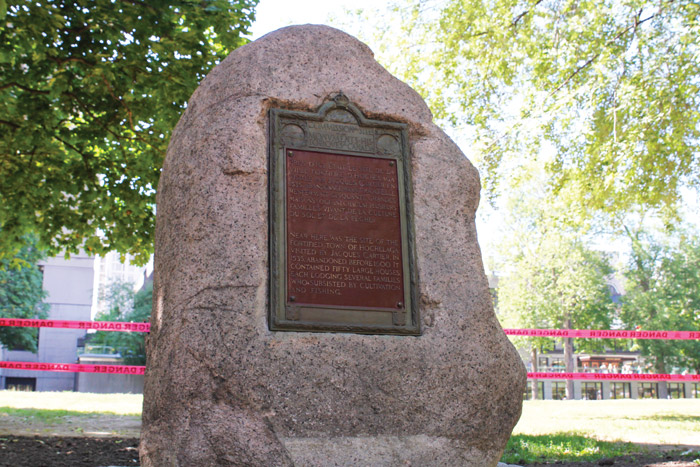This fall, McGill will be launching a Provost Task Force on Indigenous Studies and Indigenous Education. Led by co-chairs Paige Isaac, Coordinator of First Peoples’ House, Hudson Meadwell, Chair of the Department of Political Science, and Angela Campbell, Associate Provost (Policies, Procedures and Equity), the task force will propose initiatives aimed at integrating indigenous perspectives into academic curriculum and research, as well as the retention and recruitment of indigenous students and faculty members.
The task force was first proposed by Christopher Manfredi last Sept., shortly after his appointment as Provost and Vice Principal Academic.
“Last Fall, [during] my first presentation to Senate as provost, I said that I thought McGill had the opportunity to be the leading university east of the Ontario-Manitoba border [to form a provost task force],” Manfredi said.
Three months later, the Truth and Reconciliation Commission of Canada released its final report, concluding a six-year investigation that interviewed more than 6,000 indigenous men and women who survived abuse in residential schools. These schools, which operated for more than 130 years, were sponsored by the Canadian government in an attempt to assimilate indigenous youths into Euro-Canadian culture.
The Commission called for a total of 94 recommendations to be put in place. Pertaining to post-secondary institutions, the commission urged universities and colleges to introduce degrees in indigenous languages, for law schools to require all students to take a course on Aboriginal People and the law, as well as for medical and nursing schools to provide a mandatory course on indigenous health issues.
“The task force is not just about responding to the Truth and Reconciliation Commission report,” said Manfredi. “That’s obviously an important part of what the task force will look at, but it’s more broadly to think about what contributions McGill can make towards developing its own indigenous studies work and making a contribution to indigenous education.”
Thirteen members in total will serve on the task force, including two students: Ray Aldred, a PhD candidate in philosophy, and Christian Quequish, the Students’ Society of McGill University (SSMU) Indigenous Affairs Coordinator. According to Manfredi, the task force will last for nine months, with an initial progress report to be completed this coming Jan. and a final report in June 2017.
Allan Vicaire, the Indigenous Education Advisor and a member of the task force, applauded McGill’s effort in raising awareness about indigenous issues over the years.
“Already in the last five years we have built great programming, and now the task force is an addition to it,” said Vicaire. “I think it’s a really collaborative effort for myself, the First People’s house, the Office of the Dean of Students, and now the task force and the indigenous studies program is another mechanism to bring more exposure about indigenous issues”.
Ben Geobe, an indigenous student PhD candidate at the McGill School of Social Work, applied to the task force because he wanted to be a voice of a group that has historically been underrepresented. When asked why the task force was necessary, he replied, “My big concern is that I hear a lot of diverse projects that are focused on enriching or helping our neighbours in the Aboriginal, First Nation, and Inuit native communities, but you don’t always hear about it in a coordinated way.”
The task force will officially launch on Sept. 22, in commemoration of the relocation of the Hochelaga Rock.







